Double your Donation 2023
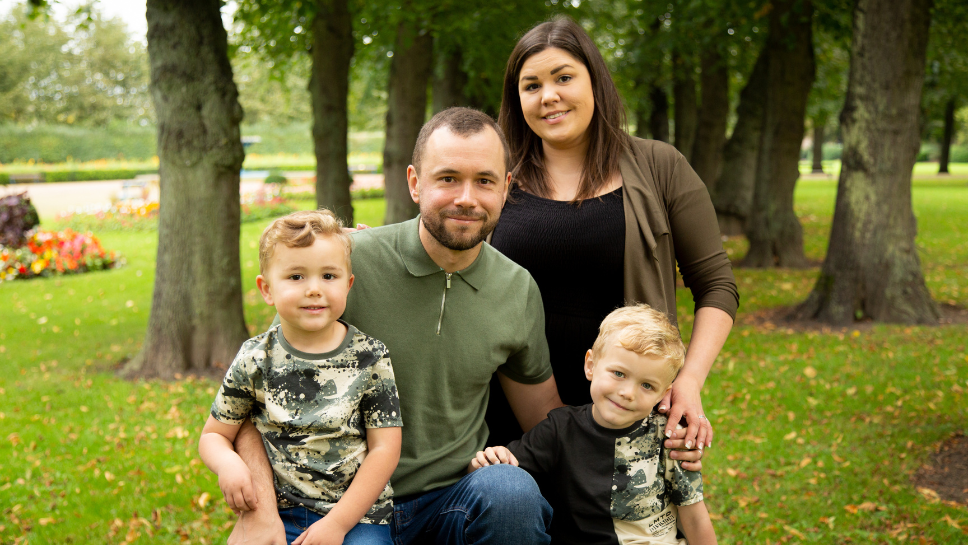

Why is this important?
More than 110,000 adults and children in the UK live with a muscle weakening or wasting condition.
This can be exhausting, stressful and lonely, with endless medical appointments, physiotherapy, treatments, and respiratory support.
Progressive conditions get worse over time. They can cause difficulty walking, swallowing, breathing complications, pain, heart problems and failure. Life can be more challenging or cut short.
That’s why for over 60 years we’ve been funding groundbreaking research and life-changing support.
How your donation will make double the difference
We have made advances that would have been unthinkable just 10 years ago and with your help we can go even further, faster. We fund groundbreaking research with the aim of finding treatments for all types of muscle wasting and weakening conditions.
In recent years there have been great advances, with 13 new treatments either available on the NHS or being assessed. While this progress is exciting, there are still over 50 conditions where people don't have access to a treatment, and still far too many people without access to a diagnosis.
By funding pioneering research, we change the future of people living with muscle wasting conditions.
Henry aged six lives with Becker muscular dystrophy

We know that MDUK will pull us and Henry through. And with them funding research into so many conditions, it feels like there's hope for the future too; not just for Henry, but everyone with a muscle wasting condition. Please, will you donate now and spread that hope and support to even more families?
Michelle, Henry's mum.
Our Double Your Donation campaign means you can make twice the impact through just the one donation. Donate on the page below from 28 November and together we can change the future of muscle wasting conditions.

Reflection on the Annual Report
Impact Report 2022-2023
Skin cells' potential to form muscle cell models
Celebrating a landmark day with the 2,000th Changing Place toilet at Leeds United
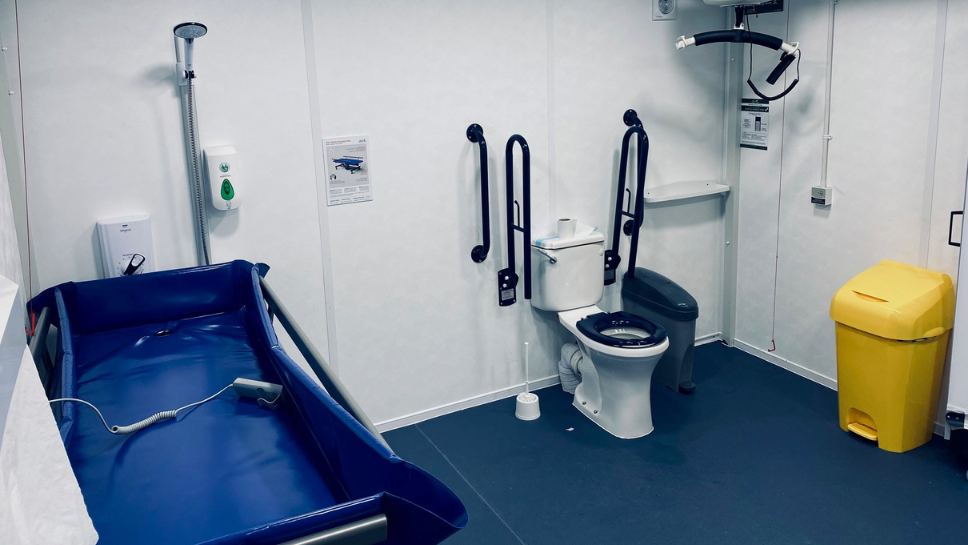
Changing Places toilets have more space than standard accessible toilets, and include essential equipment such as a ceiling hoist, peninsular toilet, and adult-sized changing bench, making them accessible to a wider range of people.
As co-chair of the Changing Places Consortium with PAMIS, we promote the installation of new CPTs in public spaces and a wide range of venues and support those campaigning for more CPTs. We also register CPTs that meet required standards and maintain the Changing Places website and map. Other consortium members include the Centre of Accessible Environments (CAE) and Martin Jackaman.
We’re incredibly proud to see how far the campaign has come. Registrations of Changing Places toilets began back in 2008, with just 13 CPTs registered in that first year. The Changing Places message has spread far and wide, bringing increasingly more venues into the inclusive fold.
Last year 162 new CPTs were registered across the UK, and this year looks to be on-track to beat that again.
There’s no denying that the Leeds area demonstrates a fantastic commitment to accessibility and inclusion with a high number of registered CPTs. Bairbre McKendrick, Access Officer for Leeds City Council said:
I would like to congratulate Vince and Helen (all the team) at Leeds United for the new facilities they have recently delivered which will make match days at Elland Road more inclusive. The new Changing Places toilet will mean more disabled people can now join their friends and families and enjoy live football as part of the Leeds United Community.
To have reached the 2,000th registered CPT is an amazing achievement, and a testament to the determination and dedication of the campaigners, as well as the commitment to inclusion from the venues who appear on the Changing Places toilets map.
A huge congratulations to Leeds United Football Club – your Changing Places toilet will truly change lives.
While it’s wonderful to have reached this milestone, the work on the Changing Places toilet campaign is far from over. Until Changing Places toilets are installed in all public spaces, the consortium will continue to work closely with campaigners, venues, suppliers, and funders as we work towards a fully inclusive society.
Myasthenia gravis treatment Efgartigimod not recommended for use in Scotland

The Scottish Medicines Consortium (SMC) has completed its assessment of efgartigimod alfa (Vyvgart®) as an add-on to standard therapy for the treatment of adults with generalised Myasthenia Gravis (gMG) who are anti-acetylcholine receptor (AChR) antibody positive. The assessment has found that the treatment should not be used in Scotland. The SMC advises NHS Boards and Area Drug and Therapeutic Committees (ADTCs) on the use of treatments in NHS Scotland.
The SMC advice acknowledges that in a phase III study, efgartigimod significantly improved Myasthenia Gravis Activities of Daily Living (MG-ADL) responder rate compared with placebo in patients with gMG who were AChR antibody positive; but found that argenx, the company that produce the treatment, did not present sufficiently robust clinical and economic analysis to gain acceptance by SMC.
A number of patients in Scotland have already begun treatment with efgartigimod through argenx’s free-of-charge (FOC) scheme. The company has confirmed that all patients who have received the treatment will continue to do so for as long as they need it. However, no new patients will be able to enrol on this scheme.
argenx has also confirmed that it is continuing to explore options to make efgartigimod available to patients in Scotland and that it has plans to resubmit to the SMC in the near future. Under SMC processes, companies may request a meeting if their treatment has not been recommended. The aim of the meeting is to help the company understand why their medicine has not been accepted and determine the nature and focus of any resubmission or independent review panel (IRP).
In England, the second NICE (The National Institute for Health and Care Excellence) Appraisal Committee Meeting for efgartigimod is taking place on Thursday 16 November 2023.
If you have any questions or would like more information about our work on access to treatments, email campaigns@musculardystrophyuk.org. Our helpline is available Monday-Thursday 10am-2pm on 0800 652 6352.
If you are a patient in Scotland already receiving efgartigimod and have any questions about the FOC scheme, speak to your treating physician who will use the appropriate channels to discuss this with argenx.
Meet our Trustee: Brigid Sutcliffe
Writing for wellbeing: how it works for me by Trish
Announcing our latest Trustees
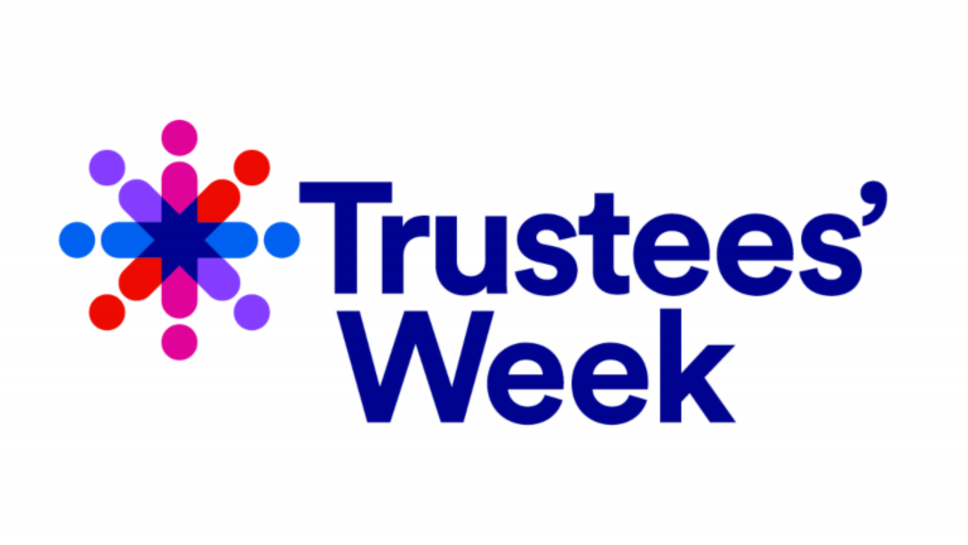
This Trustee’s Week (6 - 10 November 2023) we’re delighted to announce three new Trustee appointments.
We welcome Lord Sharkey, James Lee and Gerry McMenemy, who will join our existing Trustees to set our strategic direction, monitor the delivery of our objectives, uphold our values to governance and guide, advise and support us in achieving our overall vision and purpose.
Meet our Trustees
Lord Sharkey
John Sharkey has spent most of his commercial life in communications businesses. He was joint managing director of Saatchi and Saatchi UK, founded and ran his own advertising agency and was chair of various other communications and recruitment enterprises. He became strategic communications advisor to Nick Clegg in 2007 and was chair of the Liberal Democrat’s General Election campaign in 2010 and of the 2011 Fairer Votes campaign.
A former chair of the Association of Medical Research Charities, which he chaired for seven years, he is now a member of the House of Lords and of its Science and Technology Committee.
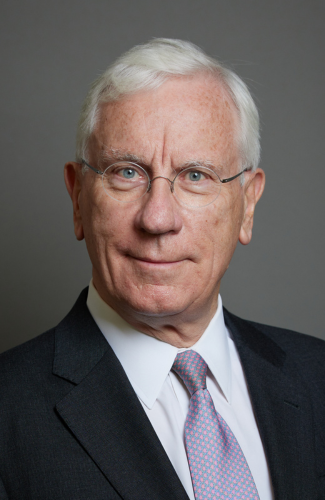
Gerry McMenemy
Gerry became involved with the charity shortly after his son was diagnosed with Duchenne muscular dystrophy. He and his wife appreciated the support of the charity, so they joined as a member, launched the family fund ‘Muscle in with Somhairle’ and Gerry became a member of the charity’s Scottish Council. He brings his lived experience as a parent and ambassador of a child with a muscle wasting condition, and his skills as an accomplished communicator and negotiator from his role as a Scottish Police Officer working through a variety of front line, operational, critical, and specialist policing fields in both management and leadership roles.
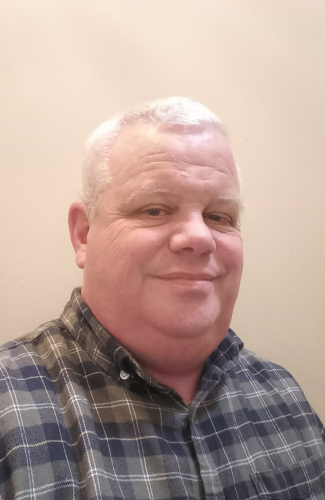
James Lee
James was diagnosed with Spinal muscular atrophy (SMA type 3) as a small child and has both volunteered and worked at Muscular Dystrophy UK. He is currently Head of the Bridge Programme at the City Bridge Trust and a former Chair of the Grants Committee at BBC Children in Need. He also sits on the Disability Advisory Group working with Transport for London and is a member of the London Recovery Board for the Greater London Authority.

A warm welcome
Chair of Trustees, Professor Michael Hanna said:
It’s a pleasure to welcome our new trustees, who join us with a wealth and breadth of experience, knowledge and expertise.
Our Chief Executive, Catherine Woodhead, said:
The support that Muscular Dystrophy UK receives from our dedicated Trustees is paramount in helping us to make great advances, which would have been unthinkable just 10 years ago.
Trustee’s Week is an opportunity to give a warm welcome to Lord Sharkey, James Lee and Gerry McMenemy and thank our existing Trustees for playing a vital part in supporting the muscle wasting and weakening community. Together we are stronger.
A special thanks to Marcus Brown, Tanvi Vyas and Michael Armstrong, who’ve recently stepped down from their role as Trustee. We wish them all the very best.
Interested in becoming a Trustee for us? Find out how you can apply and help make a difference to the muscle wasting and weaking community.
